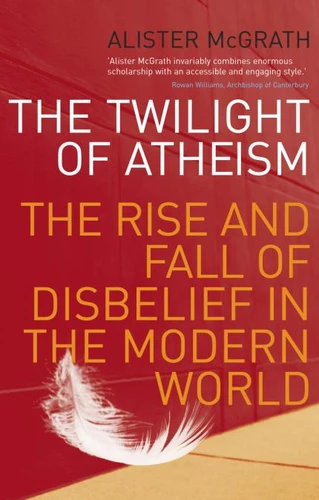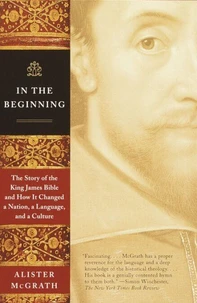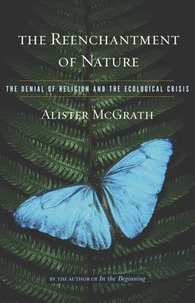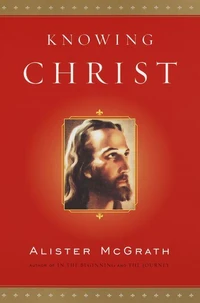The Twilight Of Atheism. The Rise and Fall of Disbelief in the Modern World
Par :Formats :
Disponible dans votre compte client Decitre ou Furet du Nord dès validation de votre commande. Le format ePub protégé est :
- Compatible avec une lecture sur My Vivlio (smartphone, tablette, ordinateur)
- Compatible avec une lecture sur liseuses Vivlio
- Pour les liseuses autres que Vivlio, vous devez utiliser le logiciel Adobe Digital Edition. Non compatible avec la lecture sur les liseuses Kindle, Remarkable et Sony
- Non compatible avec un achat hors France métropolitaine
 , qui est-ce ?
, qui est-ce ?Notre partenaire de plateforme de lecture numérique où vous retrouverez l'ensemble de vos ebooks gratuitement
Pour en savoir plus sur nos ebooks, consultez notre aide en ligne ici
- Nombre de pages320
- FormatePub
- ISBN978-1-4070-7376-7
- EAN9781407073767
- Date de parution04/09/2008
- Protection num.Adobe DRM
- Infos supplémentairesepub
- ÉditeurEbury Digital
Résumé
Atheism is one of the most important movements in modern Western culture. For the last two hundred years, it seemed to be on the verge of eliminating religion as an outmoded and dangerous superstition. Recent years, however, have witnessed the decline of disbelief and a rise in religious/spiritual devotion throughout the world. In this highly readable book, the distinguished historian and theologian, Alister McGrath examines what went wrong with the atheist dream and explains why religion and faith are destined to play a central role in the twenty-first century.
A former atheist who is now one of Christianity's foremost scholars, McGrath traces the history of atheism from its emergence in eighteenth-century Europe as a revolutionary worldview that offered liberation from the rigidity of traditional Christianity and the oppression of tyrannical monarchs, to its golden age in the first half of the twentieth century. Blending thoughtful, authoritative historical analysis with incisive portraits of such leading and influential atheists as Sigmund Freud, Marx and Richard Dawkins, McGrath exposes the flaws at the heart of atheism and argues that the renewal of faith is a natural, inevitable and necessary response to its failures.
A former atheist who is now one of Christianity's foremost scholars, McGrath traces the history of atheism from its emergence in eighteenth-century Europe as a revolutionary worldview that offered liberation from the rigidity of traditional Christianity and the oppression of tyrannical monarchs, to its golden age in the first half of the twentieth century. Blending thoughtful, authoritative historical analysis with incisive portraits of such leading and influential atheists as Sigmund Freud, Marx and Richard Dawkins, McGrath exposes the flaws at the heart of atheism and argues that the renewal of faith is a natural, inevitable and necessary response to its failures.
Atheism is one of the most important movements in modern Western culture. For the last two hundred years, it seemed to be on the verge of eliminating religion as an outmoded and dangerous superstition. Recent years, however, have witnessed the decline of disbelief and a rise in religious/spiritual devotion throughout the world. In this highly readable book, the distinguished historian and theologian, Alister McGrath examines what went wrong with the atheist dream and explains why religion and faith are destined to play a central role in the twenty-first century.
A former atheist who is now one of Christianity's foremost scholars, McGrath traces the history of atheism from its emergence in eighteenth-century Europe as a revolutionary worldview that offered liberation from the rigidity of traditional Christianity and the oppression of tyrannical monarchs, to its golden age in the first half of the twentieth century. Blending thoughtful, authoritative historical analysis with incisive portraits of such leading and influential atheists as Sigmund Freud, Marx and Richard Dawkins, McGrath exposes the flaws at the heart of atheism and argues that the renewal of faith is a natural, inevitable and necessary response to its failures.
A former atheist who is now one of Christianity's foremost scholars, McGrath traces the history of atheism from its emergence in eighteenth-century Europe as a revolutionary worldview that offered liberation from the rigidity of traditional Christianity and the oppression of tyrannical monarchs, to its golden age in the first half of the twentieth century. Blending thoughtful, authoritative historical analysis with incisive portraits of such leading and influential atheists as Sigmund Freud, Marx and Richard Dawkins, McGrath exposes the flaws at the heart of atheism and argues that the renewal of faith is a natural, inevitable and necessary response to its failures.







